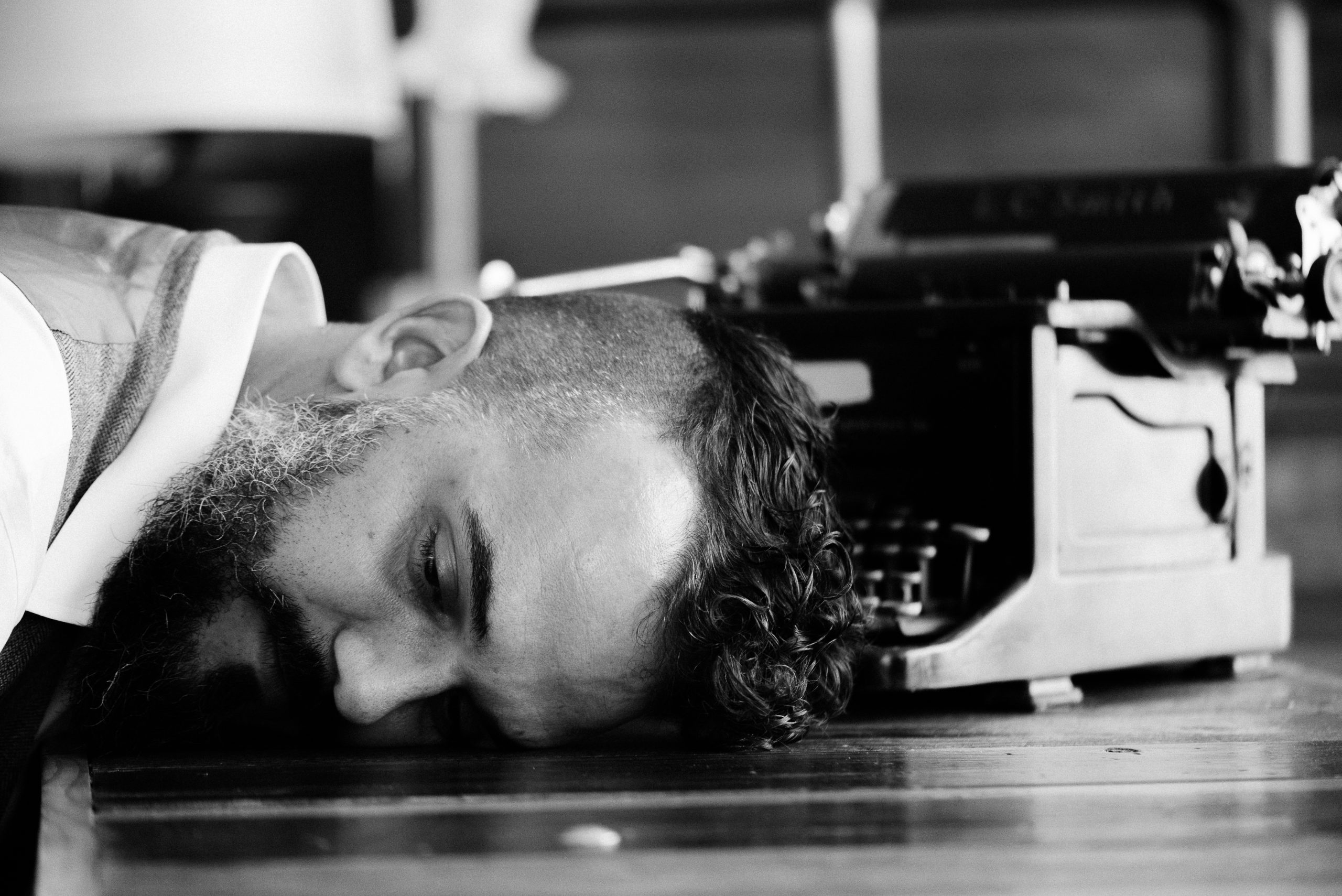
For the past year, due to COVID-19 pandemic mandates, businesses and live events were closed to the public. Some local businesses like Nomadic Press, led by Executive Director, Founder, and Oakland Arts & Cultural Affairs Commissioner J.K. Fowler, found alternative ways to reach their following, including featuring over 60 weekly virtual open mics on Zoom.
Through publications, events, and active community participation, Nomadic Press, an Oakland-based nonprofit publication and literary arts organization with operations in Oakland, CA, Des Moines, IA, and Brooklyn, NY, supports the works of emerging and established writers and artists, collectively weaving together platforms for marginalized voices to take their rightful place within the world of the written and spoken word. Some published authors include Cassandra Dallett, Rohan DaCosta, Daniel B. Summerhill, Tureeda Mikell, Anna Allen, Mason J, Anna Christine Rodas, and Oakland Voices alumna Ayodele Nzinga, to name a few.
Nomadic Press currently has office space within Oakland Peace Center, an event space and network of over thirty organizations. Locally, Nomadic Press has also fostered partnerships with Chapter 510 and Parcel Projects, to create a future location and community resource space including workshops, performance, art-making, retail, cafe and community food projects, office space, and affordable housing. Other partnerships include Nomadic Coffee in Oakland, featuring poetry in each bag.
Fowler’s lists of accomplishments are vast. He currently sits on City of Oakland’s Cultural Affairs Commission, acts as the Co-chair on the board of North Atlantic Books, is Secretary on the board of the Oakland Peace Center, and sits on Cogswell College’s English and Humanities Professional Advisory Board. He has taught anthropology and sociology at Rutgers University Newark, and has guest lectured at Mills College. He has also performed across the Bay Area and Brooklyn and has been featured in a number of radio shows and online podcasts, including KPFA, KPOO, Fuel My Fiction, StoryCorps, and others.
As a poet and writer, I have also worked with Nomadic Press, in particular as an editor on Patrice Lumumba: An Anthology of Writers on Black Liberation. Last month, during National Poetry Month, I did an email interview with Fowler to find out more about Nomadic Press, what new works were completed while sheltered-in-place due to the pandemic, his role as Oakland Arts & Cultural Affairs Commissioner, and regarding the recent CDC updates of near normalcy, whether he will follow through with the hybrid virtual/live events. (The below interview has been edited for length and clarity).
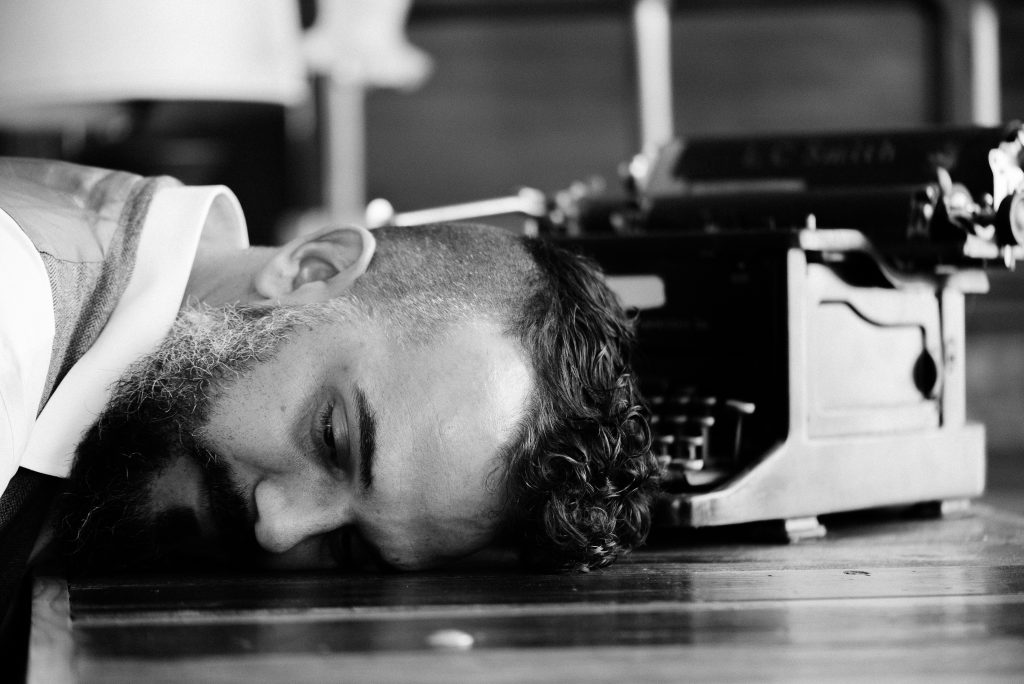
Have you written any poems since March 2020?
I have been working on a nonfiction book titled Making Space in fits and starts. Most of my energy has been spent simply trying to keep Nomadic Press afloat amidst the deep uncertainty of it all while trying to tend to my own personal impacts of living through these ongoing moments we find ourselves in.
How long did it take to write the book?
It’s been an ongoing journey now for two years. There are long periods where crippling self-doubt hits and I can’t touch the project for months. Those internalized voices—“you’re not good enough,” “you don’t have the right to write,” “others should be writing this—not you” and on and on—eventually take a vacation and I write in the moments of reprieve. I continue to be amazed by all authors who navigate their own versions of this, which seems to be quite common. Imposter syndrome is so real, and that journey for me will continue for many, many years to come.
As Oakland comes closer to 100% opening businesses, restaurants, performance spaces, what are some things that are positive or negative that you’ve seen or heard about Oakland?
While Oakland might be reopening, the impacts of the last year along with the ongoing pressures of gentrification and skyrocketing costs of living will continue for years to come. Whether it’s the ongoing police violence, corrupt officials with their misaligned budgets, or developers and their new residents who are charging existing residents out of the city limits, the challenges to simply live have been ongoing. I love Oakland and Oakland and its people are resilient. But we can only take so much. So the question for all of us is what sort of Oakland do we want to live in? On a personal level, I continue to feel the pressures of having to puzzle piece my existence together simply to keep Nomadic Press running and there is a lot of privilege in this as some folks are doing the dance simply to put food on the table and a roof over their heads.
And the city and its administrators are failing so many. Oakland’s artists, musicians, activists, organizers, teachers—by and for the people—continue to center the dignity and respect of Oaklanders and give people what they need. But others need to step up, or at a bare minimum, step out of the way.
As San Francisco/Bay Area, specifically Oakland is a hub for artists, why did it take so long to establish the Poet Laureate program in Oakland?
The City of Oakland’s Cultural Affairs Commission had been inactive since 2011, so 2020 saw the reestablishment of this commission. I had spoken to Roberto Bedoya, City of Oakland’s Cultural Affairs Division Manager, prior to me being considered for the Commission about the establishment of an Oakland Poet Laureate Program so when I was brought onto the commission, it was pretty clear what I was most interested in focusing on in my first year on the Commission. I know the interest has long been there for Oakland to have a program so I cannot speak to why it had not yet come to be, but the times we are living in call for new openings, ruptures, and filling existing gaps and the energy was there. The Oakland Poet Laureate program was just one of many such opportunities and much love to the amazing Oakland Youth Poet Laureate Program, which has been doing such deep and impactful work since 2012.
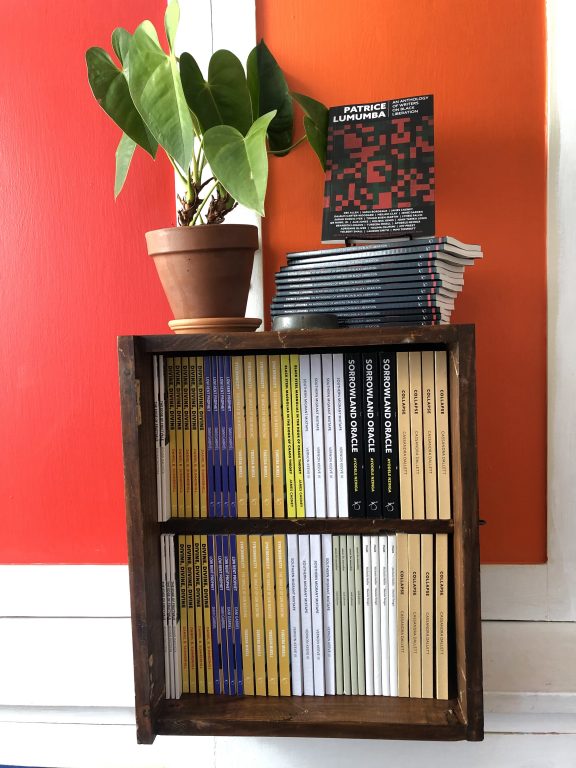
When did you know that you wanted to use your art to make a difference in someone’s life?
The first time I read was in a cafe in San Francisco many years ago, and it would take me a few years to decolonize my mind around what it meant to be a writer or read in public. The performative aspects of reading paired with my intense introvertedness and privateness wedged a distance between me and the audience, and I think my work and the reception of my work suffered as a result. As this tree gathers rings, I realize more and more that really all we have are these moments of vulnerability and potential connection so I try to limit my exposure to moments where I feel like I can be most present. It is still hard to remain in a vulnerable space when I am hurt or intensely nervous and I have developed a serious toolkit to help me through these moments and find my unwavering root. Definitely a work in progress but when I can show up authentic to core, I experience a deep connectedness to others, and it is in these moments that I revel at the power of art, and poetry in particular, to bridge.
How does poetry help heal people in challenging or changing times?
In times of crisis or sudden change, we look for ways to understand the enormity of what is occurring. When the pandemic hit, poetry and the arts were hungrily sought after. This continues. As we watch the continued falling apart of that which never truly was, people are longing for new eyes, new ways of seeing and understanding. Poetry offers at once a mirror to society and roadmaps for new ways of being in relation to the world, ourselves, each other, and other beings. The continued police assassinations of Black, brown, and indigenous folks continues; the ongoing climate crisis; the ongoing violence against our trans communities—in particular, our Black trans communities; soul-crushing economic exploitation paired with an inaccessible health care system; continued violence against women, particularly Black women and girls; white supremacy and the unacknowledged/unexamined past genocides and ongoing traumas inflicted—all of this and much more points to myriad ways in which our past and current arrangements are violently, and tragically, out of balance. There is no going back as there never was a past to return to. Poetry is one tool in the collective construction of the new.
How has “shelter-in-place” affected you as an artist and entrepreneur?
I spent a lot of time checking in on others and ensuring that Nomadic Press pivoted often, and as needed, to survive what, at the time, seemed truly unknown and unpredictable. It was a rollercoaster of bunker mentality mixed with attempting to capitalize on the moment of possibility to open new ways of interacting with our existing communities while also inviting others in from around the country and the world. The huge cultural shift to Zoom enabled us to connect across many divides to past friends and community members while also reaching folks who we may have never reached due to geographic limitations or accessibility needs. This is a beautiful thing.
Running a nonprofit publishing company while doing the personal economic acrobatics necessary to survive in the Bay Area—especially a Bay under pandemic times—keeps me running and I have to remind myself that I, too, am allowed an experience. Over the last few months, I have finally allowed myself to feel and process an immense amount of grief and personal communal impact around everything that is happening to, and through, our communities and in my own life.
What are the needs of the artist community and what are some of the best ways to address it?
There are some basics that would be a great start: truly affordable, consistent housing which requires a commitment and an investment in alternative methods of measuring success. For example, decoupling housing development from income and profit. Individuals, foundations, and corporations need to continue to loosen their purse strings and pay for the art they consume; a universal basic income is needed; the defunding of the police and a deep investment in community run mental health services and alternative healing practices, such as MH First Oakland; protected and easily accessible public and private spaces where art can be created and shared; and the continued personal, interpersonal, and societal dismantling of what bell hooks refers to as the imperialist white supremacist capitalist patriarchy.
Many artists, both salaried and freelance, saw drastic income loss; what were some ways to try to prevent this?
Nomadic Press continued its tradition of collaborating with local organizations, musicians, artists, and writers to host a series of fundraisers and events. When lock down first happened in March, we launched our weekly virtual open mic (emceed by Nazelah Jamison), which is now in its 57th week, continued to host our monthly shows, Get Lit (emceed by Abe Becker) and Speaking Axolotl (emceed by Josiah Luis Alderete), and eventually launched our Nomadic Press Emergency Fund (up to $200 dignity centered grants to Nomadic Press authors) and the Nomadic Press Black Writers Fund (end-of-year fund disbursements to any Black Nomadic Press author who has published a book by time of disbursement). We partnered with the San Francisco Foundation to award 20 x $5,000 awards to writers of poetry, fiction, and nonfiction in Alameda, San Francisco, and Contra Costa counties.
What events have you created that could become a challenge when using online sources like Zoom, YouTube, Facebook, Instagram, and so on?
Virtual events via Zoom enable us to reach more people, have less negative financial impact on performers and audience members who need to get to and from the event, make our events more accessible to folks who may live elsewhere or are unable to leave their houses, and are much kinder on the organizers, who do not need to buy food, set up chairs and sound equipment, and spend hours cleaning and prepping the space. While the in-person events are lovely, Nomadic Press will definitely move forward favoring the virtual and will likely do hybrid, virtual and in-person, events in the future when we can do so safely.
Aqueila M. Lewis-Ross is a multi-talented, award-winning Bay Area Native well-versed in singing, poetry/spoken word, and journalism. Aqueila has studied and performed throughout the United States, Europe, Japan, and is a graduate of Napa Valley College and University of California, Berkeley. Her book of poetry, Stop Hurting and Dance, published by Pochino Press, is a collection of stories overcoming fear, oppression, gentrification, and police brutality; she honors what it means to live with resilience, love and prosperity. She holds the titles of Ms. Oakland Plus America 2014, SF Raw Performing Artist of the Year 2015, and was an Oakland Voices-KALW Community Journalist awardee in 2016 and Greater Bay Area Journalism Awardee in 2017.

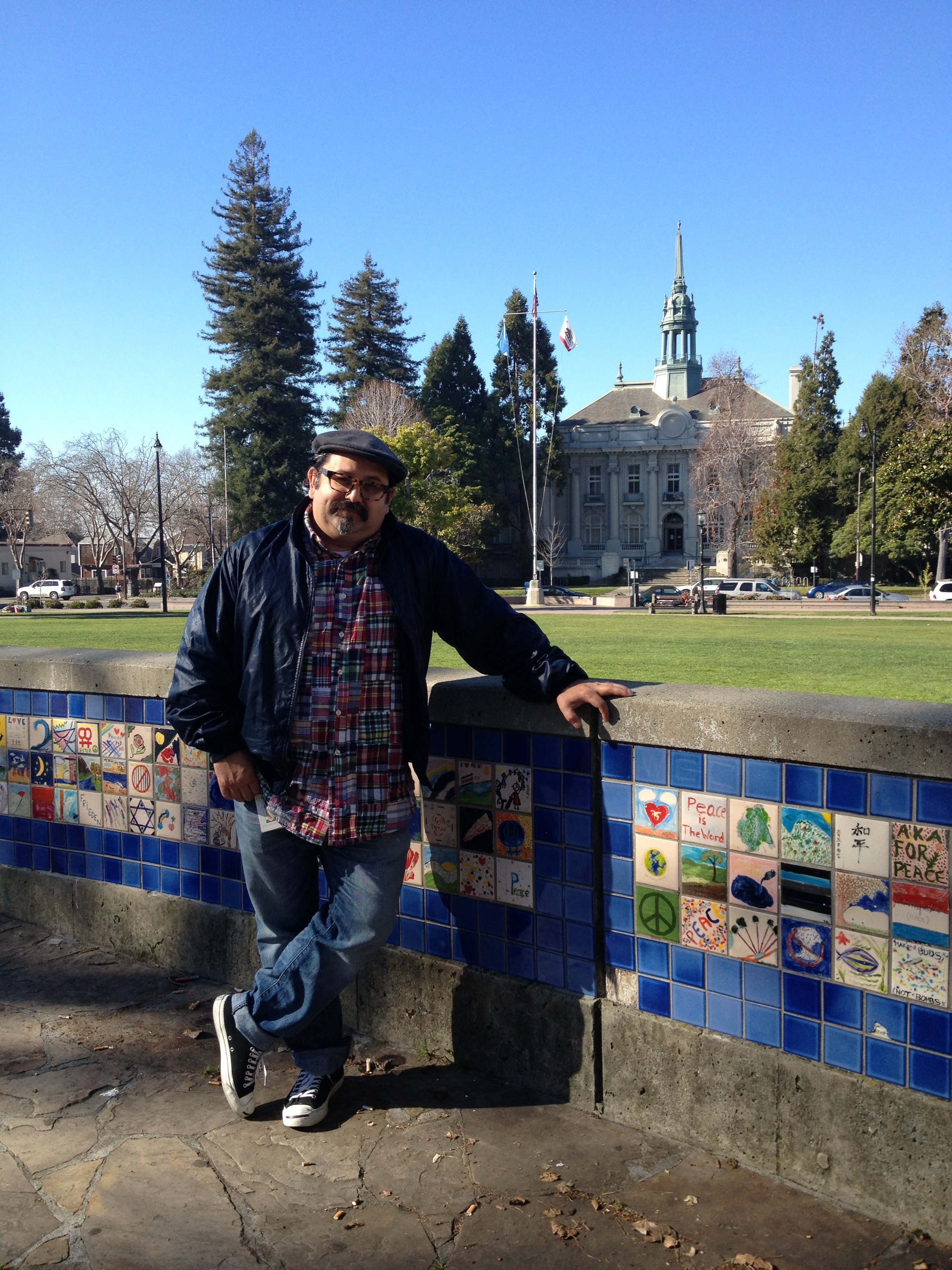
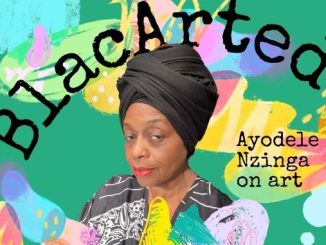
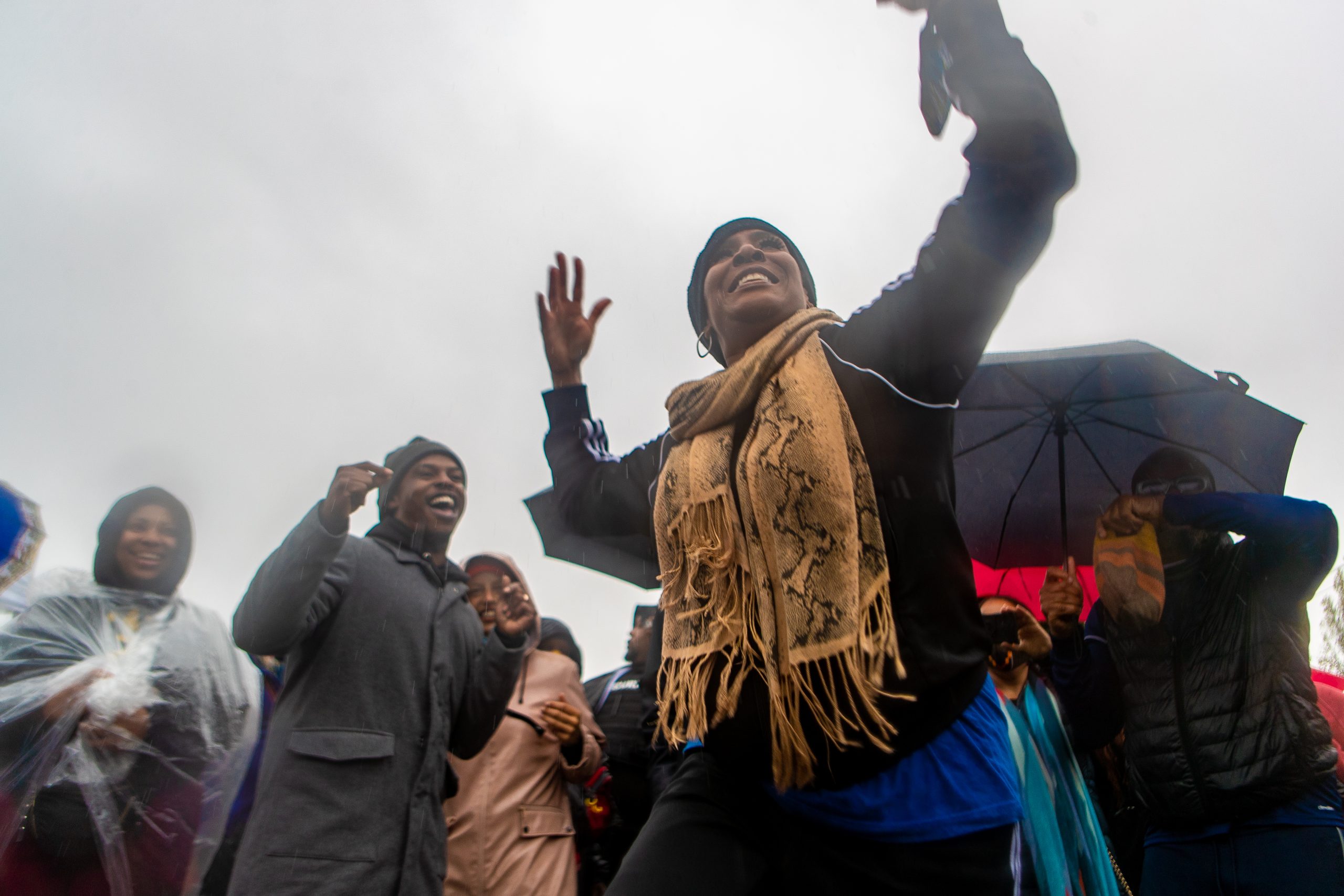
JK Fowler has lifted up the writers and artists of the bay area in more ways than can be counted. The community that he has supported and developed has given us sanctuary in these troubled times. I admire and commend his generosity, determination and tenacity.